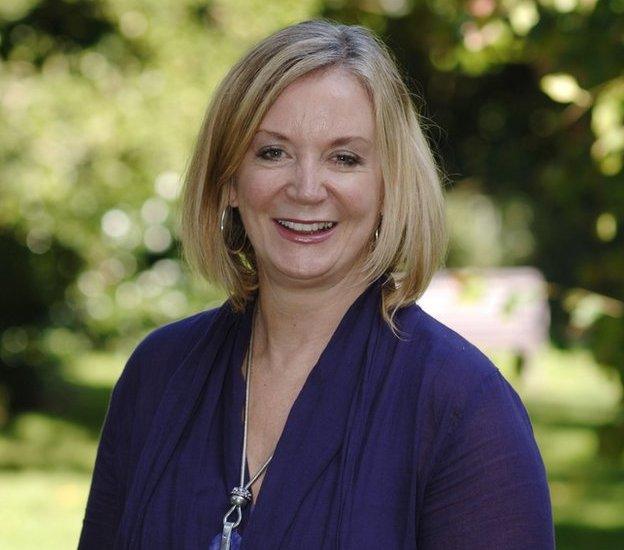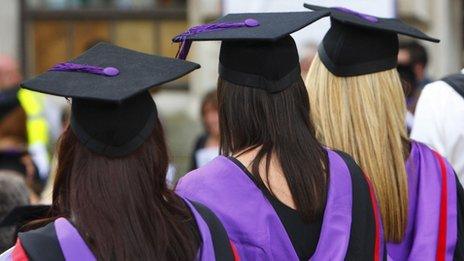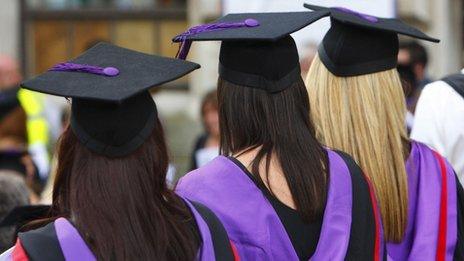Falmouth University vice chancellor's £60K rise a 'disgrace'
- Published

Anne Carlisle's pay was "a reflection of the continued growth and success of the university", officials said
An overall pay rise of nearly £60,000 for Falmouth University's vice-chancellor taking her wage close to £300,000 has angered staff.
Anne Carlisle's pay rise was one of the highest of all UK vice chancellors last year, a study for The Times Higher Education, external showed.
Lecturers said it was a "disgrace" as they fight a 1.1% pay offer.
But, university bosses said it was "a reflection of the continued growth and success of the university".
Ms Carlisle's overall pay, including performance-related pay and pensions contributions, rose by £57,391 to £285,900 in 2014-15, a 25.1% increase, the university confirmed.
'Double standards'
The average wage in Cornwall last year was £17,340, according to Cornwall Council., external
Falmouth University has about 4,200 students and Ms Carlisle's rise means she earns more than the £271,000 paid to Sir Timothy O'Shea, principal and vice-chancellor of the University of Edinburgh, which has 35,500 students, according to the study.
The university said the vice chancellor's pay was determined by the remuneration committee of its board of governors and she was not part of the discussions.
A spokesman said 97% of the university's graduates were in work or further study six months after graduating and 20% of its graduates had started their own businesses - five times the national average.
The University and College Union (UCU) is taking part in a two-day strike at universities next week as part of an ongoing pay dispute over the 1.1% pay rise offered by the employer body, the Universities and Colleges Employer Association.
UCU general secretary Sally Hunt called the rise "blatant double standards".
She said: "Universities need to answer some hard questions about how they will continue to attract and retain the best talent when pay is being held down and hardworking staff are receiving such poor reward for their efforts."
- Published11 February 2016

- Published4 March 2015
